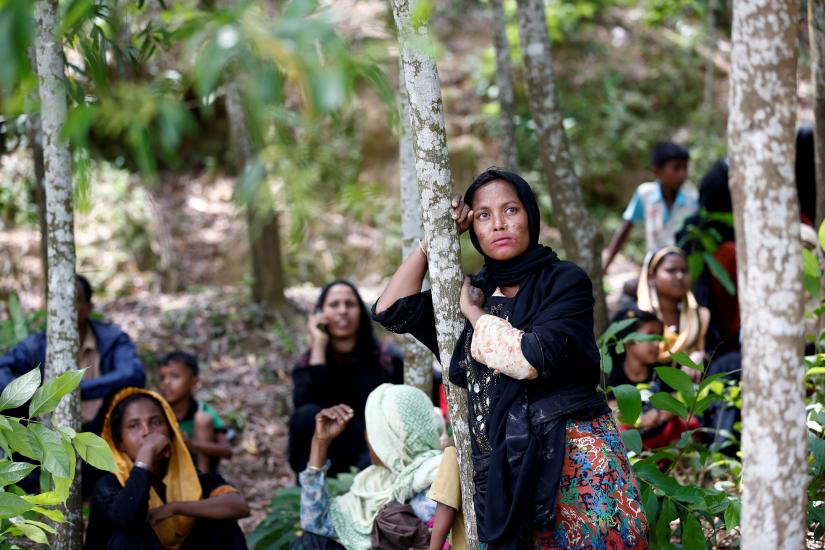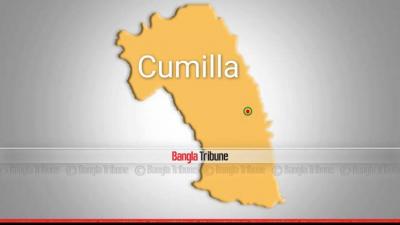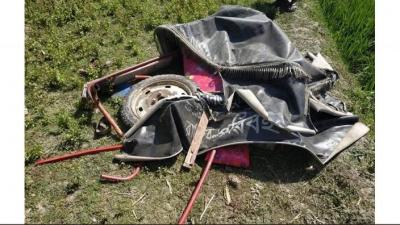 The Rohingyas living in the camps in Cox’s Bazar are awaiting the International Court of Justice order on the genocide case filed by Gambia against Myanmar.
The Rohingyas living in the camps in Cox’s Bazar are awaiting the International Court of Justice order on the genocide case filed by Gambia against Myanmar.
They are hopeful that the ICJ order on Jan 23, will pave the way for them to return to the home they fled on the face of military crackdown by the Myanmar government.
Arkan Rohingya Society for Peace and Human Rights Vice Chairman says, “We hope we will be granted justice. It will increase pressure on Myanmar and we can return home soon.”
“We are grateful for the lawsuit filed by Gambia,” said Nur Basher, the Rohingya leader for Teknaf’s Leda camp.
Nur Mohammad, a seventy-year-old refugee at the camp says that two of his cousins were killed by the Myanmar army and two of his brothers are still imprisoned in Rakhine.
Iman Hossain a Rohingya youth says that one of his brothers were killed in a helicopter strike and his parents were taken away. “I hope the ICJ will rule in favour of the Rohingyas.”
Bangladesh Refugee, Relief and Rehabilitation Commissioner Mahbub Alam Talukder says an ICJ order will make way for a solution.
In August 2017, around 700,000 crossed the border to take shelter in Bangladesh following a crackdown on the Rohingyas in Rakhine state. Over a million Rohingyas, mostly women and children, who fled persecution in Myanmar at various time periods are living in 30 refugee camps in Ukhia and Teknaf.
The Rohingyas alleged that soldiers and local Buddhists massacred families, burned hundreds of villages, and carried out gang rapes along with genocide.
Under mounting international pressure, Myanmar signed an agreement with Bangladesh in January of 2018 to take back the Rohingyas who were driven away from their homes in Rakhine as part of an ethnic cleansing. However, fearing security none of the refugees agreed to go back and two repatriation bids failed.
The ICJ, the United Nations' highest court, is set to issue a decision on a request for emergency measures in a genocide case against Myanmar on Jan. 23.
The Gambia, a mainly Muslim west African country filed the suit in November 2018, alleging Myanmar was committing "an ongoing genocide" against its minority Muslim Rohingya population.
Gambia has accused Myanmar of violating the 1948 Genocide Convention in a military campaign that expelled more than 730,000 Rohingya from the country and asked the ICJ to order "provisional measures" to prevent more harm, the first step in a legal case that is expected to go on for years.
Myanmar's leader, Aung San Suu Kyi, who defended her country against the charges, denied that genocide was taking place and said the court has no jurisdiction to hear the case.
 Country
Country
41287 hour(s) 49 minute(s) ago ;
Morning 02:43 ; Thursday ; Jul 03, 2025
Rohingyas await justice for genocide
Send
Abdur Rahman, Teknaf
Published : 02:00, Jan 19, 2020 | Updated : 02:00, Jan 19, 2020
Published : 02:00, Jan 19, 2020 | Updated : 02:00, Jan 19, 2020
0 ...0 ...
/st/
Topics: Top Stories
- KOICA donates medical supplies to BSMMU
- 5 more flights to take back British nationals to London
- Covid19: Rajarbagh, Mohammadpur worst affected
- Momen joins UN solidarity song over COVID-19 combat
- Covid-19: OIC to hold special meeting
- WFP begins food distribution in Cox’s Bazar
- WFP begins food distribution in Cox’s Bazar
- 290 return home to Australia
- Third charter flight for US citizens to return home
- Dhaka proposes to postpone D8 Summit
Unauthorized use of news, image, information, etc published by Bangla Tribune is punishable by copyright law. Appropriate legal steps will be taken by the management against any person or body that infringes those laws.
Bangla Tribune is one of the most revered online newspapers in Bangladesh, due to its reputation of neutral coverage and incisive analysis.
F R Tower, 8/C Panthapath, Shukrabad, Dhaka-1207 | Phone: 58151324; 58151326, Fax: 58151329 | Mob: 01730794527, 01730794528





